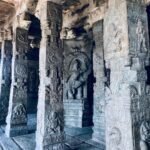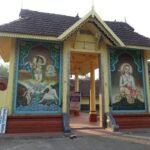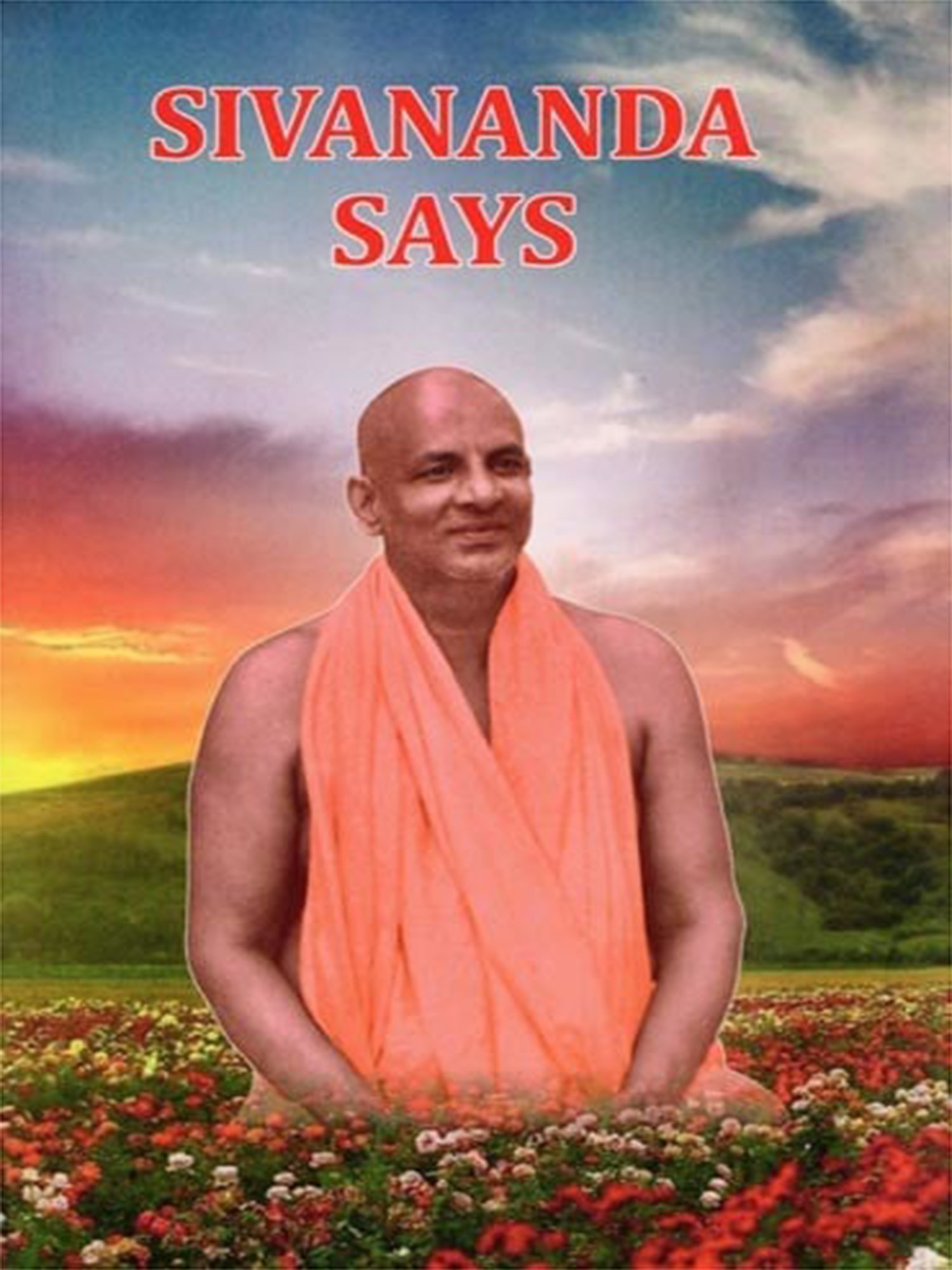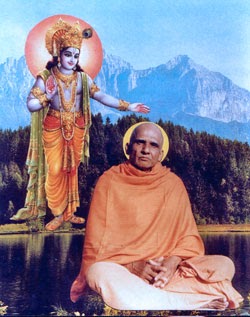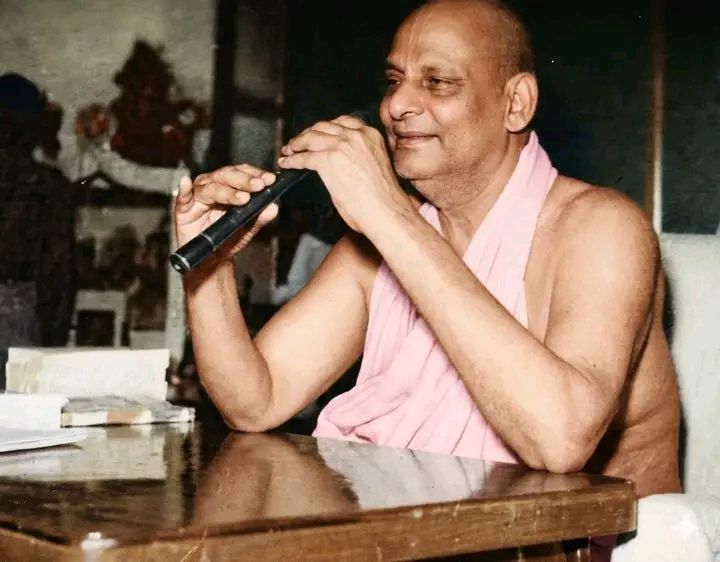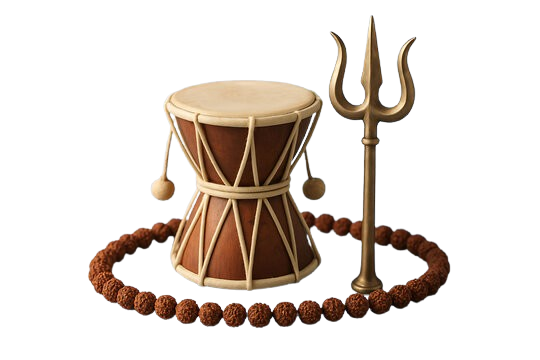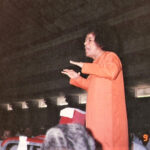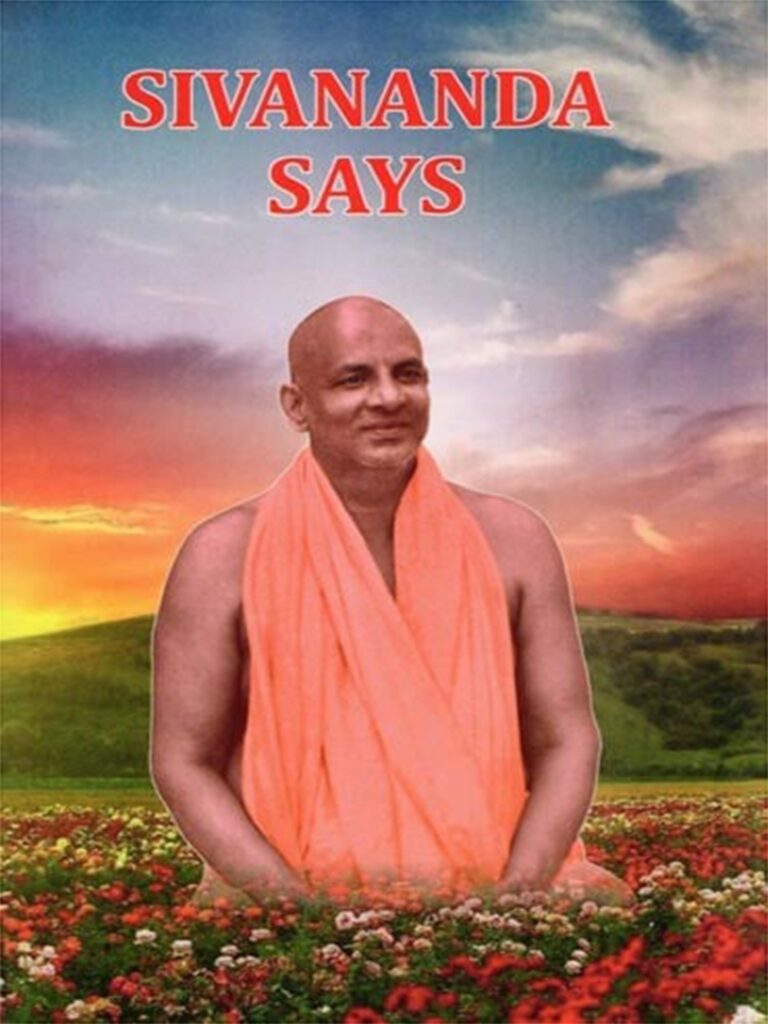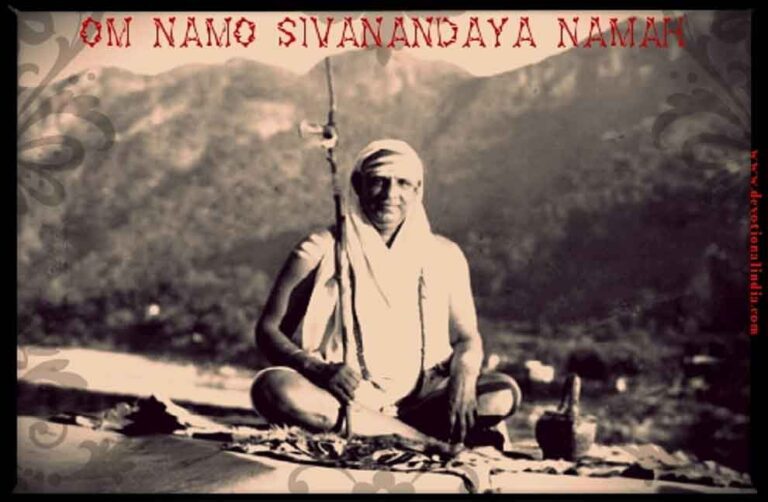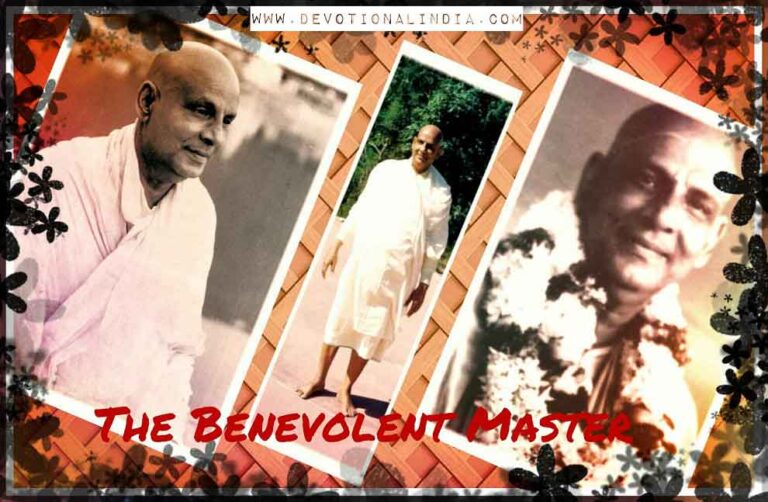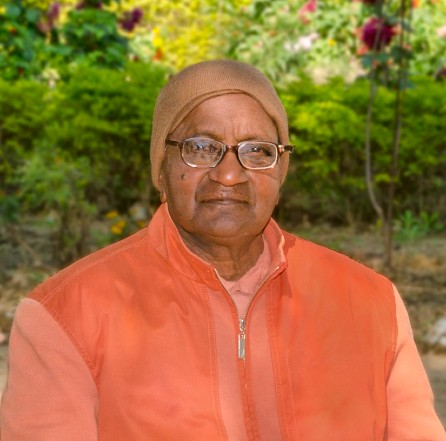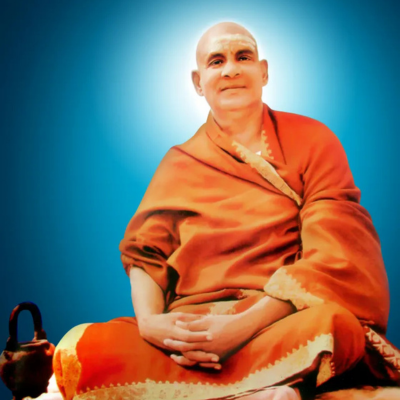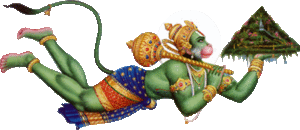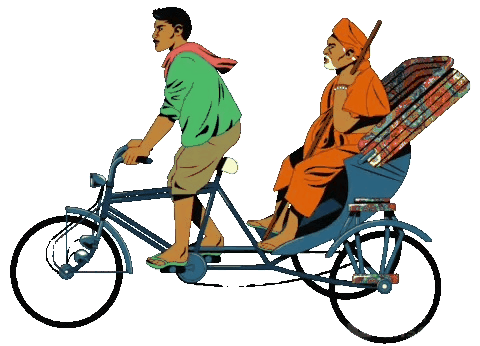CONVERSATIONS WITH SAI Satyopanishadô
Satyopanishadô – Part Three
Direct Directions from the Divine
CHAPTER 1 – THE INDIA ETERNAL
Anil Kumar (AK):ô Swami! Right now, we are in Kodai Kanal. Tamilnadu is known for its renowned devotees. We often hear about Manikya Vachakar and Tiruvalluvar. We want to hear from You about these two illustrious sons of Tamilnadu.
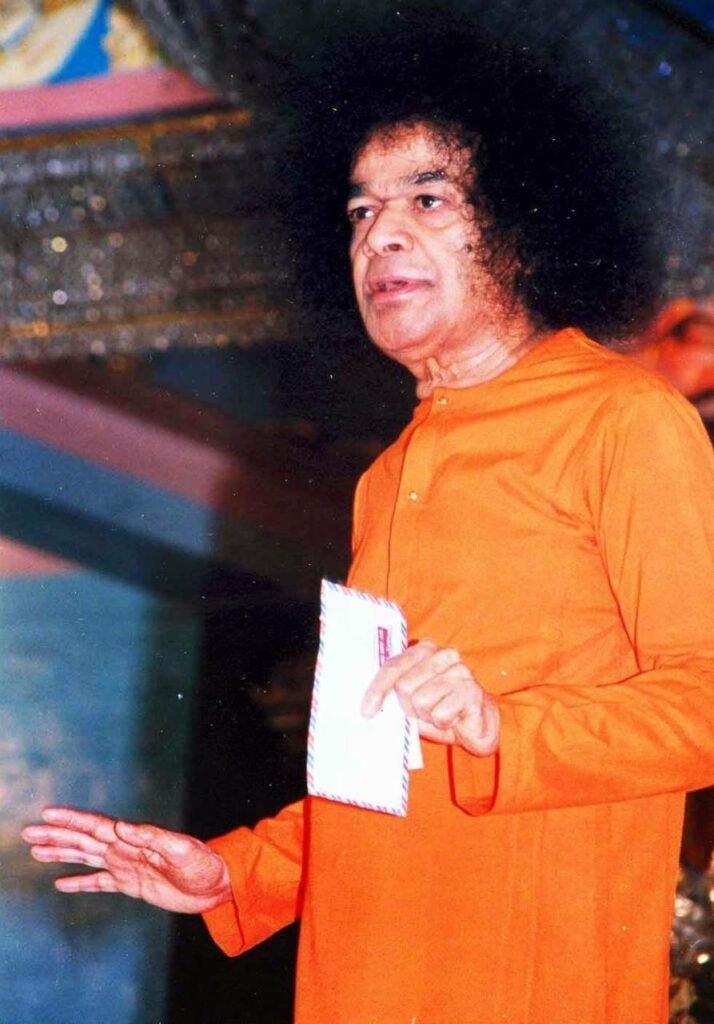
Bhagavan:ô Manikya Vachakar is the personification of forbearance, forgiveness, patience, and devotion. One day, the son of a very rich man came to him. You know, Manikya Vachakar was selling saris and maintaining his family. This boy,
The sari seller said, “Rupees ten, Sir”. The boy tore it further into two halves and asked, “Now, what is the price of this quarter sari”? The former patiently replied, “Rupees five, Sir”. The mischievous boy was very much taken aback by Manikya Vachakar’s patience. He then asked, “How is it that you are so patient in spite of my mischief?” Manikya Vachakar smiled and said, “I am a devotee of God and I have full faith in Him. He is responsible for my peace and calmness.”
In Tamilnadu, there was one devotee by name Tiruvalluvar. He was highly reputed and is known even today for his devotional composition, Tirukkural. In those days, the Pandya king had youngsters serving him as ministers. Tiruvalluvar was one of them. The Pandya king had a great liking for horses. He liked to have a number of horses of different breeds from all parts of the country. He called Tiruvalluvar, gave him some money, and sent him to get new breeds of horses from all places. The latter agreed and proceeded.
The King repented later for his hasty and wrong decision. He requested Tiruvalluvar to return and resume his duties as a minister. However, Tiruvalluvar politely refused to take up any responsibilities in the kingdom. He spent the remaining part of his life wholly in spiritual pursuits.
AK:ô Swami! God is attributeless. He is above the three qualities –ô sattvika,ô rajasika, andô tamasika. But, we are bound by these three attributes. Then, how can we realise God?
Bhagavan:ô The Divine has two aspects – He can be experienced as the one with attributes, and also as beyond them. You should know one thing chiefly – God is in the attributes. But, the attributes are not in Him. Attributes or traits cannot function and operate without Divinity in them. Gold is in the jewellery; but, jewels are not in gold. Pots are made of clay, but not vice versa. Silverware, like a glass or a plate, is made of silver. But, the glass and plate are not in silver.
Another example: You know, an electric bulb illumines, and a fan revolves. Radios, TVs, etc. are electrical gadgets, which need electricity for their functioning. But, none of these gadgets are there in electricity. Likewise, God is present in the attributes. They are not present in God. So, in a way, we can say that He has attributes, and at the same time, He is attributeless ã that is,ô sagunaô andô nirguna.
Every man has three qualities –ô sattva,ô rajas, andô tamas. But, the one that dominates the other two decides his/her thinking, feeling and action. But, unless we transcend these three qualities, we cannot experience Divinity in the true sense. Here is an example: If you want to see your own chest, what should you do?
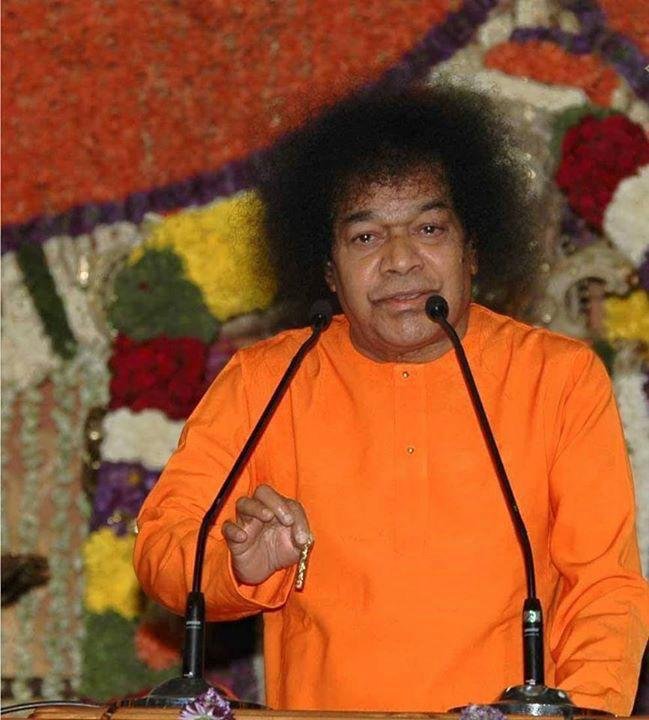
First, remove your coat, then your shirt, and finally even your undershirt, isn’t it? So also, to see the chest of Divinity, you should first remove the coat ofô tamasikaô quality, the shirt ofô rajasikaô quality and the undershirt ofô sattvikaô quality.
AK:ô Swami! We pray to you to tell us about the two aspects of God, with form and without it?
Bhagavan:ô It is here that many are confused. Without a form, from where do you get the formless? How is it possible for you to visualise the Formless? Since you have a form, you can only think of God with a form. For example, if a fish is to think of God, it can visualise God only in the form of a bigger fish. So also, if at all a buffalo thinks of God, it can think of God only as a bigger buffalo. In the same way, man can think of God only as existing in human form, the form of an ideal man.
Even the formless aspect of God can be meditated upon basing on the aspect of God with form. You cannot derive the formless without a form. Here is a small example. You are all seated in this hall, in front of Swami today, in Kodai Kanal, and listening to Swami’s words. This is an experience with a form. Later, you go home, and after a few days, you begin to reflect on what had happened here. You recall the entire scenario. In fact, has Swami come to your place physically? Would you find this room at your place? Have all of you gone there? No. But this direct experience is pictured mentally, which gives you the indirect experience of being here. What you see here is theô sakaraô (with form), and what you experience there is theô nirakaraô (formless). So, the formless is based on the aspect with form. One cannot exist without the other.
Another example. Here is milk. You want to drink it. How do you drink? Don’t you need a cup or a glass? Similarly, to worship God (milk) you need a form (cup).
AK: Swami, of these two ways of worship, the aspect with form, and the other, the formless, which is greater?
Bhagavan:ô In my opinion, both are equal. One is not in any way greater than the other. Now you are in Coimbatore. Here the land is plain, without any ups and downs. The level of the land is the same throughout; nobody leveled it. Nobody prepared the ground to be like this. It is basically the design of Coimbatore.
But Kodai Kanal is located on the hills. Nobody assembled hills there. It is made that way. Coimbatore and Kodaikanal are different from one other. Each one is full, but in its own way.
So also, the two methods of worship, one with form and the other formless, are equally beneficial to the seekers of truth and aspirants of spiritual enlightenment.
AK:ô Swami! Scriptures declare that God is omnipresent; God is everywhere. Kindly explain this aspect of Divinity? How are we to understand this?
Bhagavan:ô The Bhagavad Gita says,ô bijam mam sarva bhutanam,ô which means ãGod is the seed of this entire Creation, of all beingsã. For example, you see here a mango seed. You sow it in the ground. The seed, as days pass, germinates. In the process, the seed produces a root, then a stem, a leaf, branches, and flowers gradually.

AK:ô Swami! When the same Divinity is present in everyone, why should differences exist? Divinity being the same, why are we so different from each other?
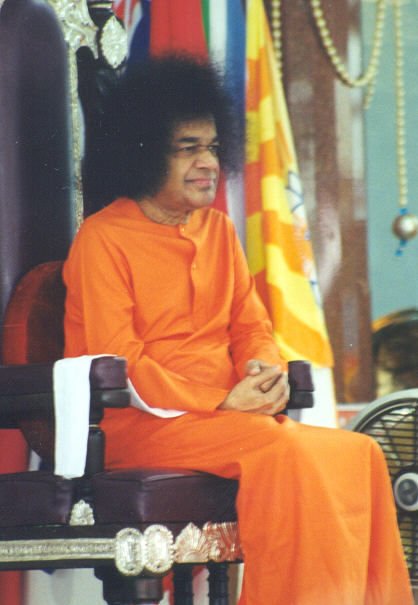
Bhagavan:ô Ekam eva Advitiyam Brahma: ãGod is one without a secondã, says the scripture. Then, how do we account for the variety, diversity, differences, and so on? A small example to understand this.
A bulb with a low voltage gives you light of low intensity, and a bulb with a high voltage illumines more brightly. Don’t they? But, at the same time, electricity is one and the same. Bulbs are different in their voltage, and this determines the intensity of light. Similarly, our bodies are like those bulbs with the inner current of the same Divinity.
AK:ô Swami! You said that Divinity is in everyone. Then, before we were born where had it been? Does Divinity exist even after our death?
Bhagavan:ô The Divine exists. Divinity is imperishable, pure and unsullied. It has neither birth nor death. It is eternal and stable. It is beyond time and space. Divinity transcends all physical laws.
Now, your question is: where did Divinity exist prior to your birth, and where will it be after your death, while it is in you during this lifetime? You see, there is an electrical wire on the wall, and also holders here and there to which bulbs are fixed.
You get light only if a bulb is fixed to a holder and not otherwise. Why? The current passes through the wire that enters the bulb fixed to the holder. If you hold the bulb in your hand, it does not illumine, as there is no power supply.
What you have to understand is this. The current has not been newly produced to get into the bulb. It was already there in the wire. If you remove the bulb, what will happen to the current? It will be there in the wire only. The only difference is that you will not experience its presence as illumination. Similarly, the bulb is the body, the current of Divinity flows into it as the illumination of life. When this bulb of the body is removed, even then, the current of Divinity persists hidden or latent, so much so that Divinity has all along been there before you were born, during your lifetime, and will even be there after your death like the current of electricity.
AK:ô Swami! It is said that God isô hrudayavasi, dweller in our heart. Is it the same heart, which is on the left side on our chest?
Bhagavan:ô No, no. That is the physical heart. But the seat of God is the spiritual heart, which is also calledô hrudaya. It meansô hrô +ô dayaô =ô hrudayaô which means, the one filled with compassion. Today compassion is a matter of fashion. People put onô kasayavastraô (ochre robes), but they haveô kasayihrdayaô (hearts of butchery).
The physical heart is on the left side, while the spiritual heart is on the right side. The spiritual heart is the temple of God. In the Gita, Lord Krishna says,ô isvarah hruddese arjuna tisthatiô which means ãGod resides in the altar of your heartã. Knowledge, be it physical, secular, scientific or technological, relates to the head and not to the heart. But love, compassion, truth, sacrifice and forbearance concern the heart.
AK:ô Swami! Can Divinity be probed into? Is it possible to know it by reasoning?
Bhagavan:ô All worldly experiences are bound by time and space. Your senses help you to experience all that is in the outer world. Science and Technology investigate the five elements, make certain combinations and permutations, and provide certain additional conveniences and comforts for mankind to lead a better life. These include electronic gadgets, computers, and so on.
Bhagavan:ô There is no way other than devotion. Your wealth, scholarship, authority and physical personality cannot please God. It is only your devotion that He looks into.
A scientist conducts an experiment, but a spiritual aspirant’s experiences of Divinity cannot be conducted in a laboratory. How do you expect to convey anything about Divinity, which is beyond expression? How do you imagine Divinity, which is beyond comprehension?
How do you investigate and experiment upon Divinity which transcends all your reasoning and senses? Science is based on experiments, and religion on experience. In science, you analyse; but in religion, you realise.

Don’t you know Guha in the Ramayana? What scholarship had he to please Rama? Nothing. He was not even educated. You also must have heard of Sabari, an ardent devotee of Lord Rama. How rich was she to be close to Rama? Nothing. She was in rags at that time, the poorest of the poor. What made the bird, Jatayu, receive the special blessings of Rama so as to deserve performance of the last rites at the Divine Hands of Rama?
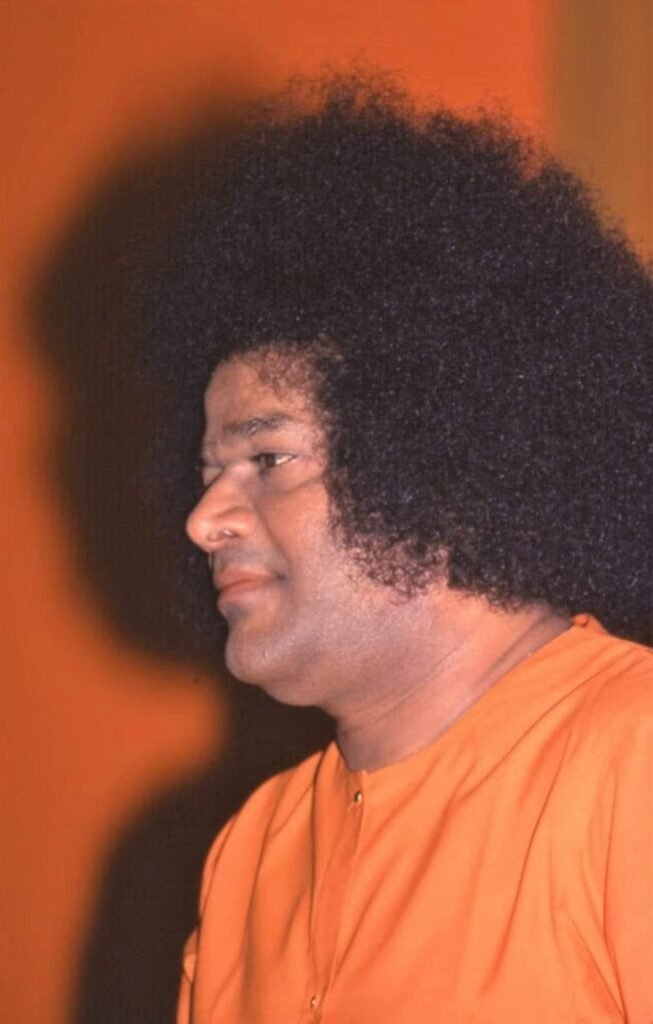
Even Rama’s father, Dasaratha, was not as fortunate as this bird Jatayu, because he died when Rama was in the forest, far away from Ayodhya. How about Hanuman, a monkey? By implicit faith in and total surrender to Rama he could be successful not only in the task assigned to him, but also came to be worshipped by the devotees of the Lord, and his worship has been continuing since the days of the Ramavatara.
The Mahabharata clearly portrays Draupadi, the queen of the Pandavas, as Lord Krishna’s devotee of the highest order, always, in times of success or failure, pleasure or pain, calm or turmoil, anywhere, either on the throne in Hastinapura, or in the forest.
The Pandavas are known for their deep devotion and abounding love for Krishna. They are the best examples of equanimity and total surrender to God such that Krishna identified Himself completely with them by saying that Dharmaja (Yudhisthira) was His head, Arjuna His heart, Bhima His shoulders, and the two youngest brothers, Nakula and Sahadeva, equal to His two feet. This is true devotion. This is the ideal stature of a devotee.
In the Bhagavata, you come across the Gopis (the cowherd girls who were rustic, innocent, and unlettered) whoseô madhura bhakti, total attachment to God, was backed by unconditional love and surrender. Their devotion was noble, pure, nectarine, and exemplary.
Have you not heard about Tyagaraja, the South Indian saint-singer and composer, who had put the question:ô nidhi cala sukhama? ramuni sannidhi seva sukhama?ô Is it wealth that gives you happiness or proximity to God? Ramadas, Surdas, Kabir, Tulasidas, Jayadev, Tukaram, Mira, and others were the very personifications of devotion. They are remembered to this day. By reading about them, you will not only be the recipient of God’s Grace, but even have a claim on God’s Grace.
AK: Swami, of these two ways of worship, the aspect with form, and the other, the formless, which is greater?
Bhagavan:ô In my opinion, both are equal. One is not in any way greater than the other. Now you are in Coimbatore. Here the land is plain, without any ups and downs.
But Kodai Kanal is located on the hills. Nobody assembled hills there. It is made that way. Coimbatore and Kodaikanal are different from one other. Each one is full, but in its own way.
So also, the two methods of worship, one with form and the other formless, are equally beneficial to the seekers of truth and aspirants of spiritual enlightenment.
AK:ô Swami! Scriptures declare that God is omnipresent; God is everywhere. Kindly explain this aspect of Divinity? How are we to understand this?
Bhagavan:ô The Bhagavad Gita says,ô bijam mam sarva bhutanam,ô which means ãGod is the seed of this entire Creation, of all beingsã. For example, you see here a mango seed. You sow it in the ground. The seed, as days pass, germinates. In the process, the seed produces a root, then a stem, a leaf, branches, and flowers gradually.
The seed is latent in every part of the plant, as all parts directly or indirectly emerge from it. Finally, in the hard seed of the fruit, also the initial or the original seed is present. So, God is present in the entire Universe. The whole world is a tree, God is the seed, and fruits are the beings or creatures born of the tree of the world.

AK:ô Swami! When the same Divinity is present in everyone, why should differences exist? Divinity being the same, why are we so different from each other?

Bhagavan:ô Ekam eva Advitiyam Brahma: ãGod is one without a secondã, says the scripture. Then, how do we account for the variety, diversity, differences, and so on? A small example to understand this. Power supply being the same, don’t you find the difference in the voltage of the bulbs that illumine?
A bulb with a low voltage gives you light of low intensity, and a bulb with a high voltage illumines more brightly. Don’t they? But, at the same time, electricity is one and the same. Bulbs are different in their voltage, and this determines the intensity of light. Similarly, our bodies are like those bulbs with the inner current of the same Divinity.
AK:ô Swami! You said that Divinity is in everyone. Then, before we were born where had it been? Does Divinity exist even after our death?
Bhagavan:ô The Divine exists. Divinity is imperishable, pure and unsullied. It has neither birth nor death. It is eternal and stable. It is beyond time and space. Divinity transcends all physical laws.
What you have to understand is this. The current has not been newly produced to get into the bulb. It was already there in the wire. If you remove the bulb, what will happen to the current? It will be there in the wire only. The only difference is that you will not experience its presence as illumination. Similarly, the bulb is the body, the current of Divinity flows into it as the illumination of life. When this bulb of the body is removed, even then, the current of Divinity persists hidden or latent, so much so that Divinity has all along been there before you were born, during your lifetime, and will even be there after your death like the current of electricity.
AK:ô Swami! It is said that God isô hrudayavasi, dweller in our heart. Is it the same heart, which is on the left side on our chest?
Bhagavan:ô No, no. That is the physical heart. But the seat of God is the spiritual heart, which is also calledô hrudaya. It meansô hrô +ô dayaô =ô hrudayaô which means, the one filled with compassion. Today compassion is a matter of fashion. People put onô kasayavastraô (ochre robes), but they haveô kasayihrdayaô (hearts of butchery).
The physical heart is on the left side, while the spiritual heart is on the right side. The spiritual heart is the temple of God. In the Gita, Lord Krishna says,ô isvarah hruddese arjuna tisthatiô which means ãGod resides in the altar of your heartã. Knowledge, be it physical, secular, scientific or technological, relates to the head and not to the heart. But love, compassion, truth, sacrifice and forbearance concern the heart.
AK:ô Swami! Can Divinity be probed into? Is it possible to know it by reasoning?
Bhagavan:ô All worldly experiences are bound by time and space. Your senses help you to experience all that is in the outer world. Science and Technology investigate the five elements, make certain combinations and permutations, and provide certain additional conveniences and comforts for mankind to lead a better life. These include electronic gadgets, computers, and so on.
A scientist conducts an experiment, but a spiritual aspirant’s experiences of Divinity cannot be conducted in a laboratory. How do you expect to convey anything about Divinity, which is beyond expression? How do you imagine Divinity, which is beyond comprehension?
How do you investigate and experiment upon Divinity which transcends all your reasoning and senses? Science is based on experiments, and religion on experience. In science, you analyse; but in religion, you realise.
Bhagavan:ô There is no way other than devotion. Your wealth, scholarship, authority and physical personality cannot please God. It is only your devotion that He looks into.
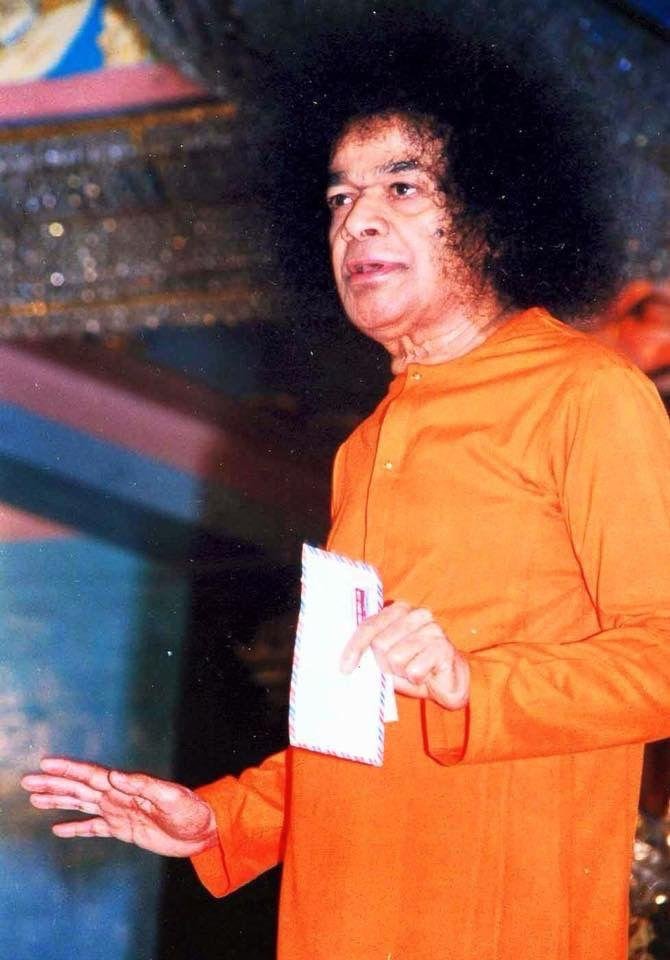
Don’t you know Guha in the Ramayana? What scholarship had he to please Rama? Nothing. He was not even educated. You also must have heard of Sabari, an ardent devotee of Lord Rama. How rich was she to be close to Rama? Nothing. She was in rags at that time, the poorest of the poor. What made the bird, Jatayu, receive the special blessings of Rama so as to deserve performance of the last rites at the Divine Hands of Rama?
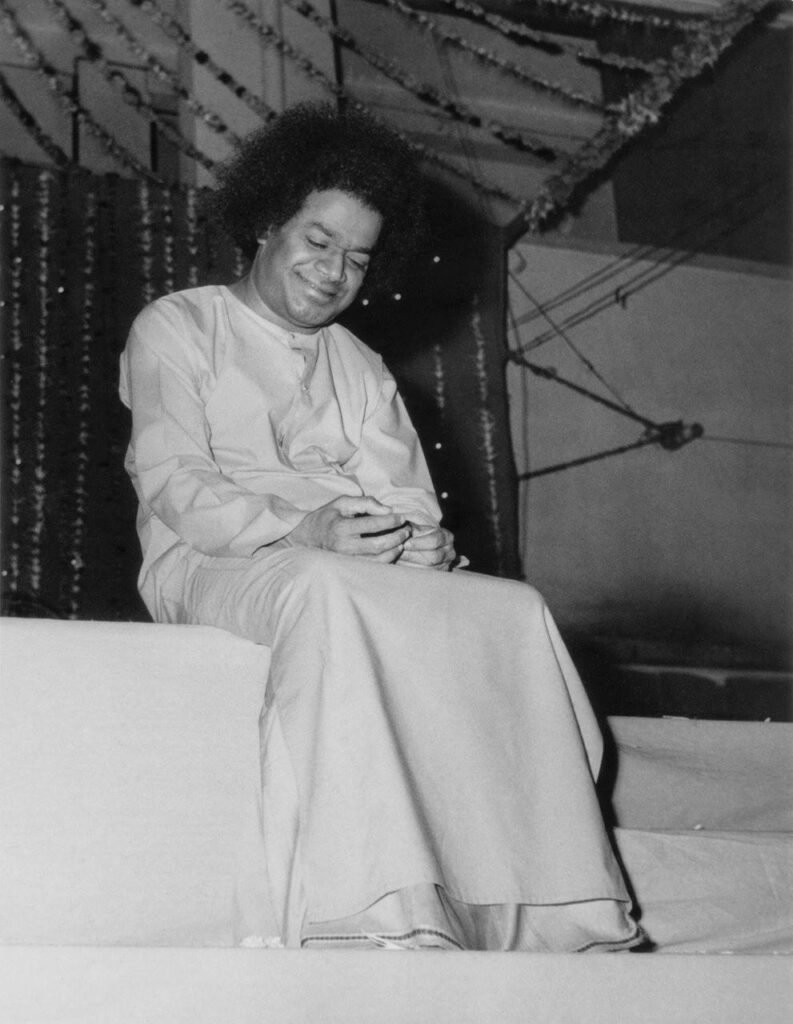
Even Rama’s father, Dasaratha, was not as fortunate as this bird Jatayu, because he died when Rama was in the forest, far away from Ayodhya. How about Hanuman, a monkey? By implicit faith in and total surrender to Rama he could be successful not only in the task assigned to him, but also came to be worshipped by the devotees of the Lord, and his worship has been continuing since the days of the Ramavatara.
The Mahabharata clearly portrays Draupadi, the queen of the Pandavas, as Lord Krishna’s devotee of the highest order, always, in times of success or failure, pleasure or pain, calm or turmoil, anywhere, either on the throne in Hastinapura, or in the forest.
The Pandavas are known for their deep devotion and abounding love for Krishna. They are the best examples of equanimity and total surrender to God such that Krishna identified Himself completely with them by saying that Dharmaja (Yudhisthira) was His head, Arjuna His heart, Bhima His shoulders, and the two youngest brothers, Nakula and Sahadeva, equal to His two feet. This is true devotion. This is the ideal stature of a devotee.
Have you not heard about Tyagaraja, the South Indian saint-singer and composer, who had put the question:ô nidhi cala sukhama? ramuni sannidhi seva sukhama?ô Is it wealth that gives you happiness or proximity to God? Ramadas, Surdas, Kabir, Tulasidas, Jayadev, Tukaram, Mira, and others were the very personifications of devotion. They are remembered to this day. By reading about them, you will not only be the recipient of God’s Grace, but even have a claim on God’s Grace.
Bhagavan:ô It is not proper to feel so. You are wrong if you think so. God’s Grace is equally available to all of you. He makes no distinctions of caste, creed, sex, nationality, and so on. You should know that the defect is in you. You have to cleanse the tumbler of your heart. For example, it is raining heavily now. If you want to collect water in a vessel, what you do is to keep it straight. However, if you turn it downwards or put it upside down, is it possible to collect water? The downpour of rain will be of no help at all. Therefore, we have to keep our hearts always pure and ready to receive the rain of Grace. We have to turn it towards the rain of God’s Love in order to collect it. Is it not so?
Bhagavan:ô Look! Out of the millions of devotees how many are able to be here? Is this proximity possible for everyone? Merit from several past lives had made you fortunate enough to be here. Out of a few thousand in our institutions, how many students are lucky enough to be here? Only a few of you could follow Me to this place, Kodai Kanal. This you will have to preserve and sustain carefully.
A small example. Here is a roll of thread, which is the product of much rotating and winding. A time consuming job, really! If they take up this process in haste, and drop it in the middle out of neglect or carelessness, all the thread will lie scattered on the ground. Similarly, your fortune is like this roll of thread, carefully and laboriously wound, like the merit of the good deeds you had done in your past lives. If you neglect this fortune and lose it by any mischance, you can’t get it back. All the effort you have put in will go waste. The thick pad at the centre of this roll is like your faith round which your meritorious deeds are wound. So, never neglect this good luck, nor take it for granted, nor view it as simple and ordinary. Negligence and carelessness are harmful to spiritual aspirants.
Bhagavan:ô God’s Grace and God’s Will can change anything. God is Love. His Infinite Compassion makes Him change yourô prarabdha karmaô or the karmic effects of your past lives. A devotee can arrest God in the jail of his heart. In this world, there is nothing that you can’t achieve with devotion. God’s Grace can cancel all your karmic effects or the evil effects of your past life. Nothing untoward can happen to you.
A small example. You see many medicines kept for sale in a medical shop. On each of the medicines you find the date of manufacture and of expiry. The medicine will not act with efficiency beyond the date of expiry. It becomes just useless. What God does is exactly the same thing.
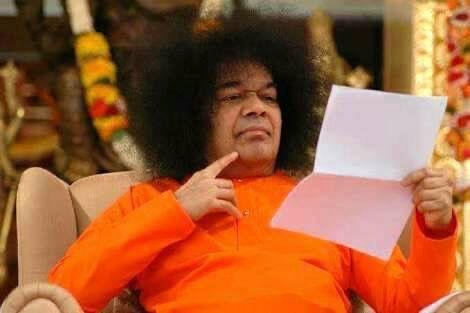
AK:ô Swami! We are here in Your presence because of Your Infinite Grace and Mercy. Your Blessings have brought us all here. We bask in the sunshine of bliss bestowed on us by Your Divineô darshan, sparshanô andô sambhashan. Do we still need merit from past lives and theô samskaras?
Bhagavan:ô The present state of bliss and the merit from past lives are both essential and they should go together. They are closely interrelated. Take this example. Here the soil is sandy. When there are heavy rains, water sinks into the soil or gets absorbed in the soil. The same is the situation with you at present. Therefore, devotion doesn’t remain steady. But, suppose there is a flow of river water, what happens when it rains? Water will flow with greater vigour than before. Similarly, your present blessed opportunity of being with Me is like rainwater. If you have goodô samskarasô from your past life like the water flow of a river, the blissful state you are experiencing now will continue with more vigour.
God’s Grace is like a shower of rain. Your merit from the past will enable you to contain it. So, I tell you often to retain the good luck, the opportunity, and the privilege given to you. You draw water out of the well in a bucket. But you have to pick up the bucket full of water yourself. On the other hand, if you drop it in the middle, what happens? You can’t collect water, can you? However, there is one important thing. If you love God intensely, you can achieve anything. As human effort increases, God’s Grace also lends strength and intensity to the effort, which ultimately leads man to success.
Satyopanishadô – part Four
Direct Directions from the Divine
CHAPTER 2 – TRENDS IN SOCIETY
Anil Kumar (AK):ô Swami! Man is not behaving in the way expected of him. He is losing his very human nature. How should he transform himself at this juncture? What happens to society if he remains like this?
Bhagavan:ô You do not know that you are using certain words without knowing their meaning. If you understand the words that you utter, you will notice that they are self explanatory and convey their meaning in unambiguous terms. What is the meaning of this wordô manava, man? ‘Ma’ meansô mayaô or illusion; ‘na’, meansô daatiô (Telugu) or crossing over; ‘va’, meansô vartincuô (Telugu) or to conduct oneself. In other words, ‘manava’ means ‘the one who crossesô mayaô and conducts himself accordingly’,
Man is also calledô narahô (Sanskrit). ãNaã means ‘not’, and ãrahã means ‘perishable’. Thus,ô narah, means ‘not perishable’. Obviously, the one, which is imperishable, is eternal, that is, immortal, orô atma, Truth. There is another wordô vanaraô (Sanskrit) denoting a ‘monkey’. ãVaã denotesô valaô or tail. So ã nara ã should be viewed as man withoutô valaô or tail. Man isô saksara: ãsaã, divine andô aksara, undiminishable or permanent. Thus,ô saksaraô is one who is undiminishable, permanent or eternal,ô Atma. He, who has the awareness of suchô Atma, isô saksara. But alas! Man today is behaving asô raksasa, demon. Man is expected to haveô dama, control of senses, but he is full ofô mada, pride and conceit. So, when we understand the meaning of these words, we shall know that man orô vyakti, the individual, should exhibit and express the quality ofô Atma, which he truly is.
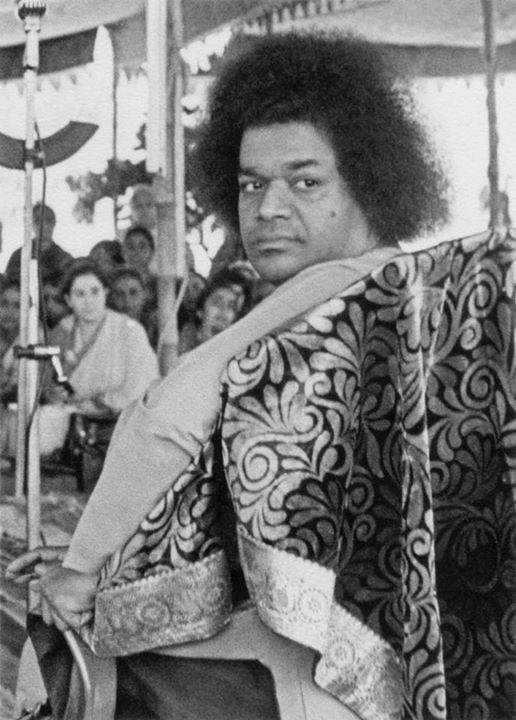
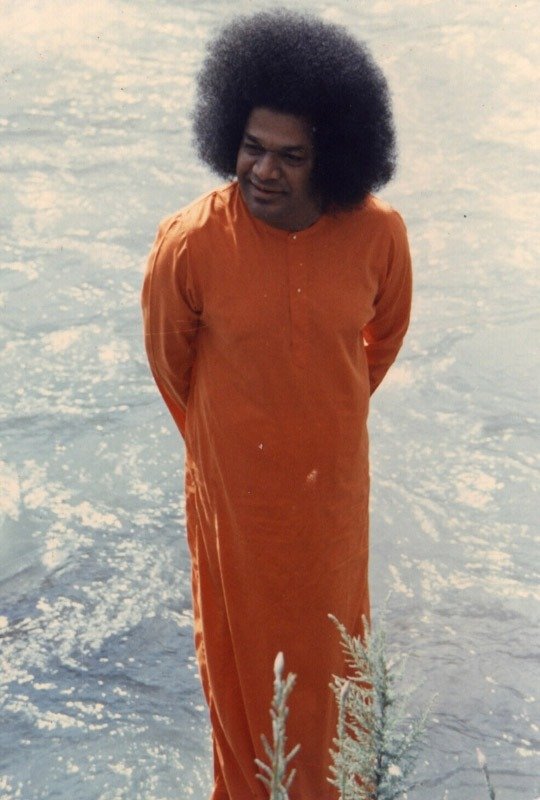
We hear people saying that society should change. However, in my opinion, it is wrong. If the individual changes, society will automatically change. A small example: A father presented a map of India to his young son. The boy, by mistake, tore it to pieces and was reprimanded by his father. After some time, the son brought the map intact. When asked by the father how he could do it, the boy replied that on the reverse side of the map there was the picture of a man. He said the only thing he did was to correctly assemble the torn pieces of the man to make it into the original picture. Then the original map formed itself automatically.
Thus, when individuals reform, society will automatically get reformed. Every person should know that the happiness of the individual depends on that of society. Man’s welfare, progress and prosperity depend on society. This truth must be fully understood by everyone.ô For example, when there is a fire in the neighbourhood, you make an attempt to extinguish it. Why? If you do not, your house will not be safe. When all the other houses in the neighbourhood are burnt down by the fire, your house too will be burnt. When there are epidemics like cholera, you will be extra careful; otherwise, you will also become one of the victims. Similar is the relationship between an individual and the society he lives in.
Take the earth; it is not the same throughout. There are hills, mountains, and valleys. However, in our experience we clearly visualise unity. Are the five fingers of the same hand identical? No. Similarly, the members of one and the same family are not alike or uniform. They are not stereotypes. All the same, there cannot be any valid reason for the absence of fraternity, unity, and love among the members of the family.
A good example from our epics maybe cited in this context. You analyse ‘the family our Lord Siva’. Siva has Ganga water over his head, and fire on his forehead between the two eyes. He is, therefore,ô Trinetraô or ‘the three-eyed’ God’. ‘Water’ and ‘Fire’ are also opposed to each other in their nature and don’t coexist. Siva isô pannagadhara,ô nagabhusanaô for He has venomous serpents around His neck.
The vehicle of his elder son, Lord Subrahmanya, is a peacock. Snakes and peacocks are enemies. The vehicle of Goddess Parvati, consort of Siva, is a lion; she isô simhavahini. The very face of Siva’s second son is that of an elephant. Ganesh is called Gajanana for this reason. An elephant can’t even dream of the sight of a lion. Parvati has all the jewels, but Her Lord, Siva isô digambara, with minimum attire, andô bhasma bhusitangaô that is, vibhuti smeared all over His body. Though Siva’s family is full of opposites and contradictions, there is integration, coordination, harmony and unity.
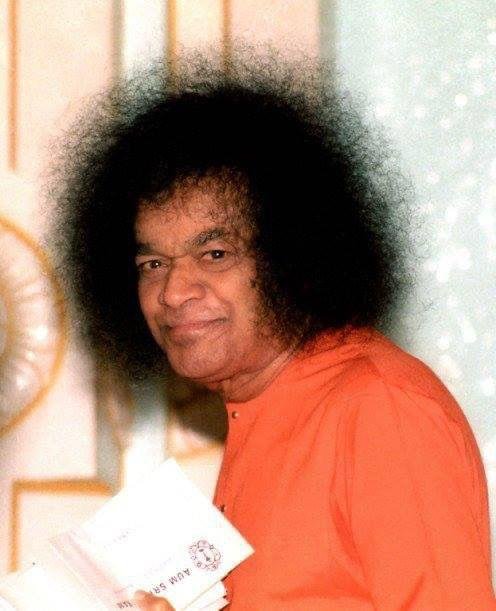
The composition of human blood is the same all over the world; everybody breathes oxygen. All tread the same ground. Hunger is one, be that of a rich man who may dine in a five star hotel or of a beggar who appeases his hunger with mere starch. Thirst is one and the same, be that of a rich man who will have a cool drink or of a poor man who drinks tap water in the street. Both feel happy in moments of joy and both grieve in times of difficulties.

The human body is composed of the five elements: earth, water, air, fire, and space. The body is inert. We breathe air into it. There is also fire within, keeping the body warm and helping us in digesting food. There is space within accommodating all parts of the human body. There is plenty of water in the body. So the five elements outside are also inside you. Everyone has them in the same proportion.
All that you have is also present in everybody else. Then, why do you stretch your hand begging from everyone? What for? What is it that you don’t have which the other man has? Basically nothing! This is the philosophy of unity in diversity. This unity is divinity.
The experience of this sort of spiritual unity is liberation, whereas the feeling of multiplicity, plurality and diversity is bondage, dualism, and attachment.
Flowers are many, but worship is one; Cows are many, but milk is one. Jewels are many, but gold is one; paths are many, but the goal is one; stars are many, but the sky is one; beings are many, but breath is one; names and forms are many, but God is one.
There is only one religion, the religion of love. To have differences based on language or race is bad. It is a sign of narrow mindedness. There is only one language, the language of the heart. It is very mean to have differences on grounds of caste. You are not born with a signboard indicating your caste. What is the caste of the air? To which caste does water belong? What is the caste of fire and earth? Therefore, there is only one caste, the caste of humanity. Wars are fought in the name of God. Donãt you know that there arenãt many Gods? God is one without a second. You may call Him by any name. There is one God who is Omnipresent.
Ekam sat viprah bahudha vadanti, ãTruth is one, but interpreted in many ways by scholarsã. There are no differences in divinity. Withô cittasuddhi, purity of heart, you can experience the principle of unity or oneness, which is the path to divinity. First, develop purity. That helps you to achieve unity and attain Divinity.
AK:ô Swami! In reality, the entire human race is one and the same, its basic core being divinity. Why then do we not react in the same way? Why do we think and act differently?
Bhagavan:ô Humanity may be one, but people act in different ways. No two are alike. This is the law of nature. Thought, words and actions depend on time and circumstances. Here is an example. A tender fruit is sour in its taste; an unripe fruit is astringent, while a ripe fruit is sweet. All the three are the stages of the same fruit, aren’t they! It is sour, then astringent and finally sweet. How does it happen? Why? The change of taste is due to the passage of time. No one has filled the ripe fruit with sugar. So, I sayô yetti matiyo, atti gati; yetti sthitio, atti sampattiô (Telugu verse). ãAs is the mind, so is the destiny; as is the position, so is the affluence.ã
In human life, there are three important aspects, ‘doing’, body; ‘thinking’, mind; ‘being’, Atma. Body desires, mind thinks andô atmaô experiences. You should have broadmindedness. You should never be narrow-minded. When examination results are published, why don’t you feel happy that so many have passed the examinations?ô If in the spirit of a large heart, you look for your result, you will definitely find your number in the newspaper along with those of other candidates. It is but narrow-ôÙmindedness if you look only for your own number unmindful of others.
Another example: Suppose you feel happy that in a group photo everyone has figured nicely. If you then look at your own figure, you will be known to be broadminded.
Human life is a combination of three attributes,ô trigunas. The three work in perfect union as the three wings of a fan. Just as a chutney is made of tamarind, salt and chillies well ground, so also human life hasô trigunas, well mixed. You also must have knownô pan, which Indians chew. It has three ingredients, betel leaf, betel nut and lime, of green, brown and white colours respectively. When the ingredients of three different colours are chewed, you get the red colour.
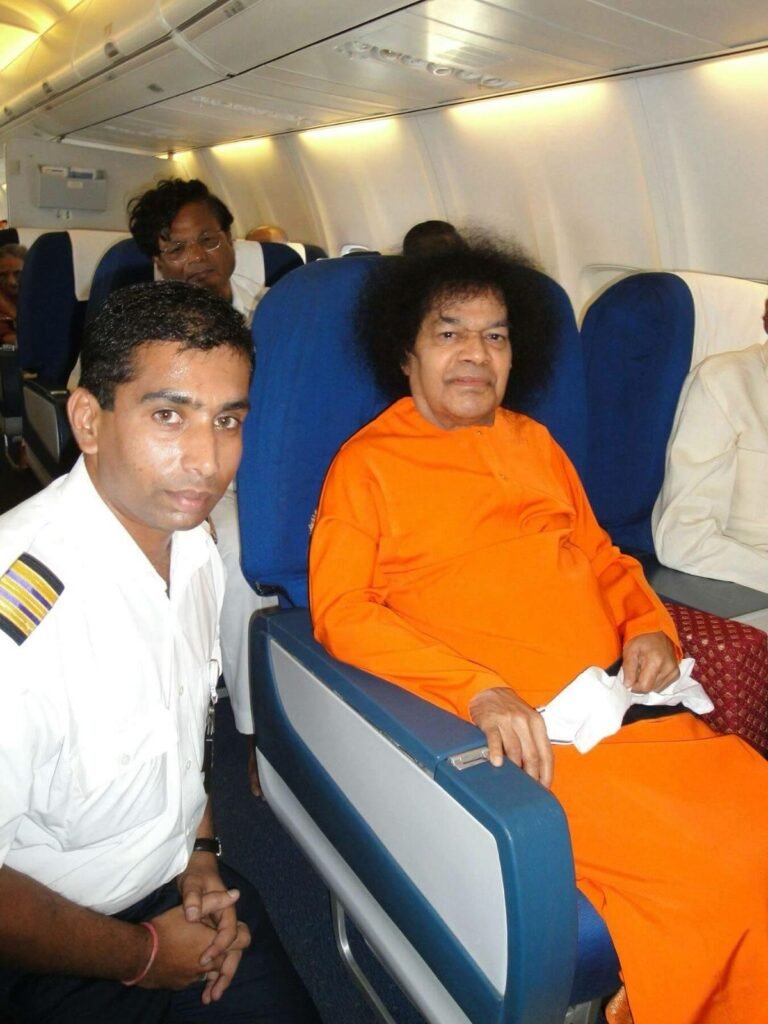
AK:ô Swami! We hear the words,ô rajanitiô and rajakiyam. Are these, in fact, one and the same? How should we name what we see around us?
A small example: Once upon a time all the five fingers of the palm started claiming superiority over one another. First, the little finger said to the others, “Look! As you doô namaskar, I come first. Therefore, I am important”. The ring finger then said, “What! Don’t you know my value? Costly diamond and gold rings are worn round me!” Then, the middle finger said, “Very funny! What are you talking about? I am ready to wear costly rings. Why not? Some do that way also. Further, don’t you see me, who am taller than all of you? Isn’t that enough to say that I am superior to all of you?” The forefinger started saying, “If you want to direct anybody, I come first. People show me to direct people. Further, even to warn or caution others, I come first. Don’t you see this?” Then, last but not the least, the thumb smiling said, “I have been watching so long all that is happening! Unless I join, even if the four of you stand united, you cannot function. While eating anything, can you manage without me? Why go to that extent? When you shoot an arrow, I have to pull the string backwards with force. Else, the arrow will never go far. So mine is the highest position among us”.
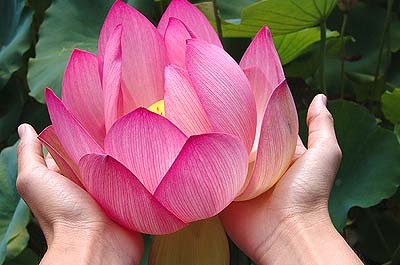
This is how we find people staking their claims for superiority over one other. You should always be ready to receive the good from anybody. You should work in cooperation and harmony with one another. No one should feel superior to anyone. Otherwise, because of the domination of one over another, groups, factions, rivalries, controversies and conflicts arise. As a result, the spirit of love totally vanishes from the scene. Unless all the five fingers join, you cannot do anything, you see! Society can never progress if there is no cooperation, integration and unity among its members.

